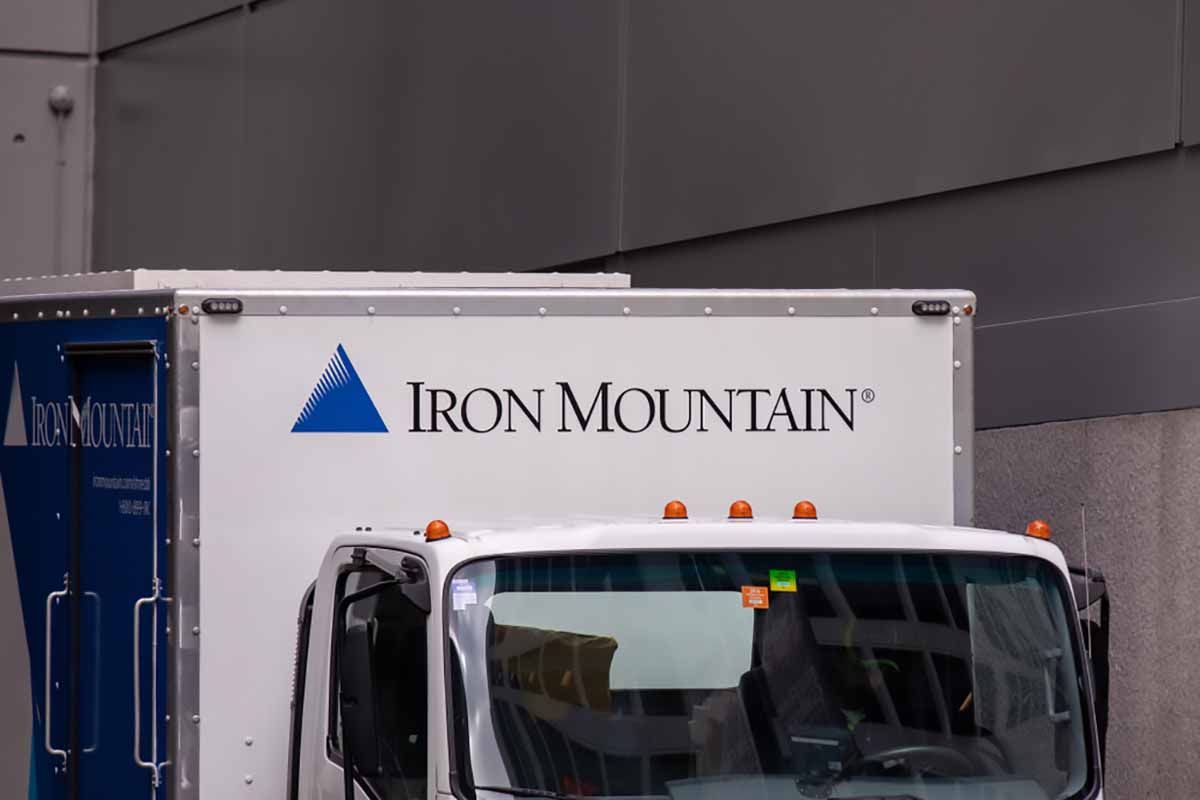
Following a large acquisition and facing a management shakeup, Iron Mountain’s ITAD arm is posting growing revenues. | Bandersnatch/Shutterstock
Data management giant Iron Mountain saw a $213 million bump in its revenue last year because of its acquisition of ITRenew.
That was one of several ITAD-related takeaways from recent financial filings from Iron Mountain, a publicly traded company.
Iron Mountain paid $718 million on Jan. 25, 2022, to buy an 80% interest in ITRenew, a U.S.-based company that provides services to hyperscale and corporate IT infrastructure managers. Iron Mountain has the ability to purchase the remaining 20% of the company after January 2025.
Today, Iron Mountain’s Asset Lifecycle Management (ALM) business is substantially made up of ITRenew, but it also includes some of Iron Mountain’s legacy ITAD operations.
New details about the transaction and impact of the acquisition were included in Iron Mountain’s 2022 financial disclosure. Iron Mountain previously reported financials from its ITAD business under its much bigger North American Records and Information Management (RIM) business, which made it impossible to gauge the performance of the ITAD business, specifically.
Now, Iron Mountain includes results from its ALM business under its “Corporate and Other” segment, which also includes a smaller fine arts management business and corporate-wide executive and staff expenses. The “Corporate and Other” segment’s service revenue in 2022 was $352 million, up about 244% from 2021 on a constant-currency basis. Of that increase, 215 percentage points came from the impact of acquisitions, particularly ITRenew, and 29 percentage points were from organic growth from the legacy ITAD operations.
The following are other notes of interest regarding Iron Mountain’s ALM business.
Management changes: In February, Deirdre Evens, general manager of the ALM business, announced she would retire in mid-September 2023. She will be replaced by Mark Kidd, who is currently general manager of Iron Mountain’s data center business. In his new role, Kidd will oversee both the ALM and data center businesses. Bringing the two different businesses under one manager has been a long-term goal of the company, according to the announcement.
“The acquisition of ALM assets was predicated in part on the overlapping customer bases and needs between the Company’s Data Center and ALM businesses,” the notice states.
Cross-selling competitive advantage: In a Feb. 23 conference call with investors, CEO William Meany pointed to an example of how Iron Mountain can win ITAD clients by simultaneously offering a suite of other services. In 2022, a large nonprofit healthcare provider, a 20-plus-year records management customer of Iron Mountain, expanded the services it pays Iron Mountain for to also include ITAD, data management, secure storage of non-records and document digitization services. Through the new 10-year contract, that healthcare provider is paying Iron Mountain $5 million a year, up from $2.5 million a year under the prior contract.
During the call, Meany also noted that Iron Mountain renewed its contract with its largest ALM customer, one of the largest technology companies in the world.
“We continue to be excited and encouraged by the total addressable market in the asset lifecycle management category,” he said.
Impacts from China: During the call, Barry Hytinen, Iron Mountain’s chief financial officer, said that, looking forward, the company is planning revenue growth conservatively for the portion of ALM’s business focused on decommissioning hyperscale data centers. That’s because of continued impacts from COVID-19 in China.
“As a reminder, the decommissioning market was performing better through the first half of 2022 and slowed down sharply following more intense lockdowns in China,” Hytinen said.
The company’s annual report notes that the majority of the decommissioned assets the ALM business resells are sold into mainland China, presenting a risk in cases of trade disruptions or weakening demand in China.
“We are, I think, being prudent with our expectations for ITRenew going forward because as you’ve probably seen in the press, China continues to – while the restrictions are off, they continue to have a lot of challenges with COVID there,” Hytinen said. “And so we haven’t seen the market develop meaningfully yet, but we are cautiously optimistic. So we are planning for the first quarter expectations for our ALM business to be consistent with the fourth quarter revenue levels and then ramping over the course of the year.”
A competitor in the data center decommissioning market, Sims Lifecycle Services, also reported a softening used device market in China last year. In its filings, Sims noted that it experienced weaker demand and lower average prices for used electronics sold in China, one factor in its reducing earnings for the year.
More stories about markets
- Iron Mountain raises ITAD guidance on strong growth
- Earnings results point to active IT hardware lifecycles
- Metallium looks to long-term contract with Glencore